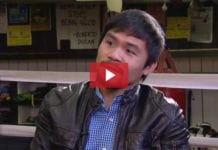The doctrine of the church, or the need for the church to play a role in how we arrive at truth about our faith, is one of eight doctrines that Hanegraaff listed as being essential to Christianity. “The church is the ground and pillar of truth,” he said. “We’re never saved in isolation.”
The splintered nature of the modern American church is actually what prompted Hanegraaff to become Eastern Orthodox. Seeing “winds and waves of doctrine sweeping through the church,” he said, is “what ultimately took me back to the ancient church.”
Like Yohannan, Hanegraaff stressed the importance of humility when pursuing both truth and unity in the church, and he shared a lesson from his own experience. At one point in time, Hanegraaff’s Christian Research Institute (CRI) took a public stance that another group called “The Recovery” was a cult. But after doing years of research on that group, CRI concluded that The Recovery was not in fact a cult. Even though CRI and The Recovery disagreed on significant issues pertaining to the Christian faith, Hanegraaff said he had no doubt that the members of The Recovery were “brothers in the Lord.”
So CRI publicly admitted it had been wrong. It was crucial that Hanegraaff and CRI had been willing to listen and to learn, even from people they were convinced were wrong. That posture not only led to a deeper unity between two groups of believers from different traditions but also expanded Hanegraaff’s own understanding of his faith.
“It was people in that move of the Spirit that I saw in far-flung places around the world that gave me a hunger for life,” said Hanegraaff. “I knew about the Lord, and I knew doctrinal truth, but I did not experience the life that some of these people who may have had less intellectual or spiritual or theological acumen than I had. But they had a living, vibrant relationship with the Lord which I pined after, and that opened the floodgates for me.”
As their conversation drew to a close, Chan pointed out that even though the three men had had a productive discussion out of a true desire to see unity in the church, “the truth is, that even this discussion that we’ve had will be taken and will cause disunity.” Someone will pull a sound bite from their talk and use it to tell the world why the three of them are heretics.
Again, Hanegraaff and Yohannan said that humility is the answer to this concern over people hindering unity the church. In Acts 20:17-20, Paul tells the Ephesian church elders,
You know how I lived the whole time I was with you, from the first day I came into the province of Asia. I served the Lord with great humility and with tears and in the midst of severe testing by the plots of my Jewish opponents. You know that I have not hesitated to preach anything that would be helpful to you but have taught you publicly and from house to house.
The Apostle Paul dealt with opposition throughout his ministry, but he pursued humility as he defended the truth. “Dividers will always be among us,” said Hanegraaff. “What we’re looking for is people who are humble.” He said Chan set a good example of someone pursuing unity in the church and humility when Yohannan’s Gospel for Asia faced controversy over alleged fraud. Instead of jumping to conclusions, Chan did his own research and investigated what had happened.
Chan said that when he asked Hanegraaff and Yohannan how Christians can know what essential doctrine is, he thought they were going to point him toward a particular creed or book. Pointing him toward humility “wasn’t the answer I was expecting,” he said, “but it makes all the sense in the world to me.”











